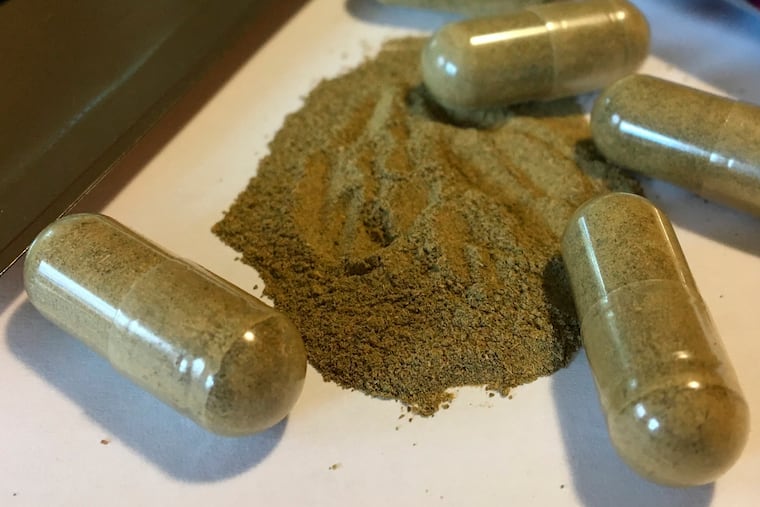Kratom products may cause liver injury, new analysis led by Philadelphia physician finds
The research adds to the debate over the risks and benefits of the unregulated, little-studied derivative of a Southeast Asian tree.

Products containing the herbal supplement kratom may damage the liver in rare cases, a new review suggests.
All seven patients with liver damage in the review fully recovered, but the research adds to the debate over the risks and benefits of the unregulated, little-studied derivative of a Southeast Asian tree.
Kratom proponents, including the American Kratom Association, say it is boosts mood and energy, relieves pain, and can ease withdrawal from opioid addiction. But federal regulatory agencies, including the Food and Drug Administration, warn that kratom is a dangerous, addictive substance. The U.S. Centers for Disease Control and Prevention recently said kratom caused 91 out of 27,000 overdose deaths over 18 months ending in December 2017 — although almost all the kratom fatalities involved additional drugs such as opioids.
» READ MORE: Deaths from kratom are rising. But by how much?
The new analysis was conducted by the federally funded Drug-Induced Liver Injury Network and presented at a meeting Monday by lead researcher Victor Navarro, a gastroenterologist with the Einstein Healthcare Network in Philadelphia.
His team reviewed 404 cases of liver damage linked to dietary supplements between 2004 and 2018. Eight injuries involved products containing kratom, and seven of them were convincingly tied to kratom. The seven patients — mostly middle-aged white men — used kratom for a median of 15 days, and were hospitalized with symptoms including itching, jaundice, and abdominal pain.
“This is a bellwether,” Navarro said at a news conference at the annual meeting of the American Association for the Study of Liver Diseases. “Not only are we seeing increased use of kratom and adverse events associated with it, but liver injury.”
An estimated 3 million Americans use kratom, which is available online, in smoke shops, bodegas, and gas stations.
» READ MORE: FDA issues new warning about unproven medical claims for kratom
The FDA has warned that kratom products contain high levels of heavy metals such as nickel and lead. Last year, the CDC linked kratom to an outbreak of salmonella that sickened 87 people in 35 states.
In 2016, the Drug Enforcement Administration tried to put kratom in the same category as heroin, a step 16 countries have taken. Although the agency cited a “high potential for abuse” and no accepted medical use for kratom, it backpedaled after kratom users and some members of Congress denounced the move.